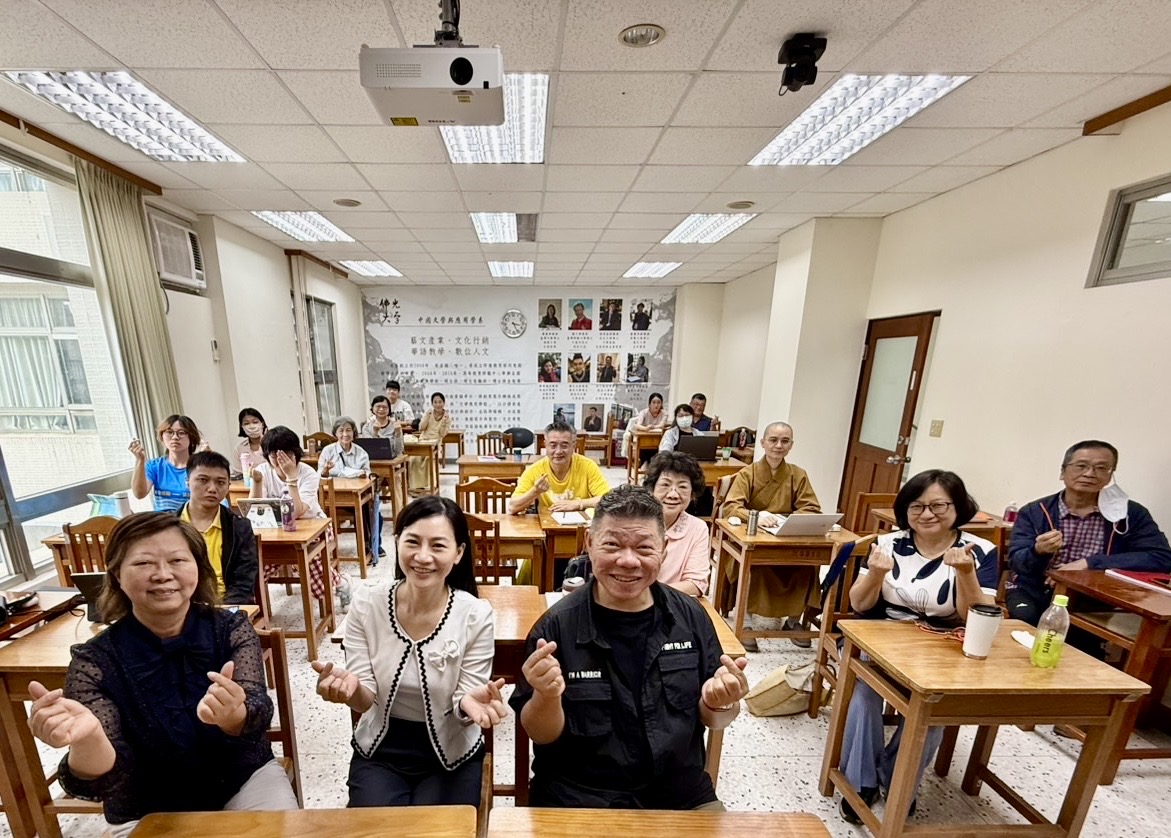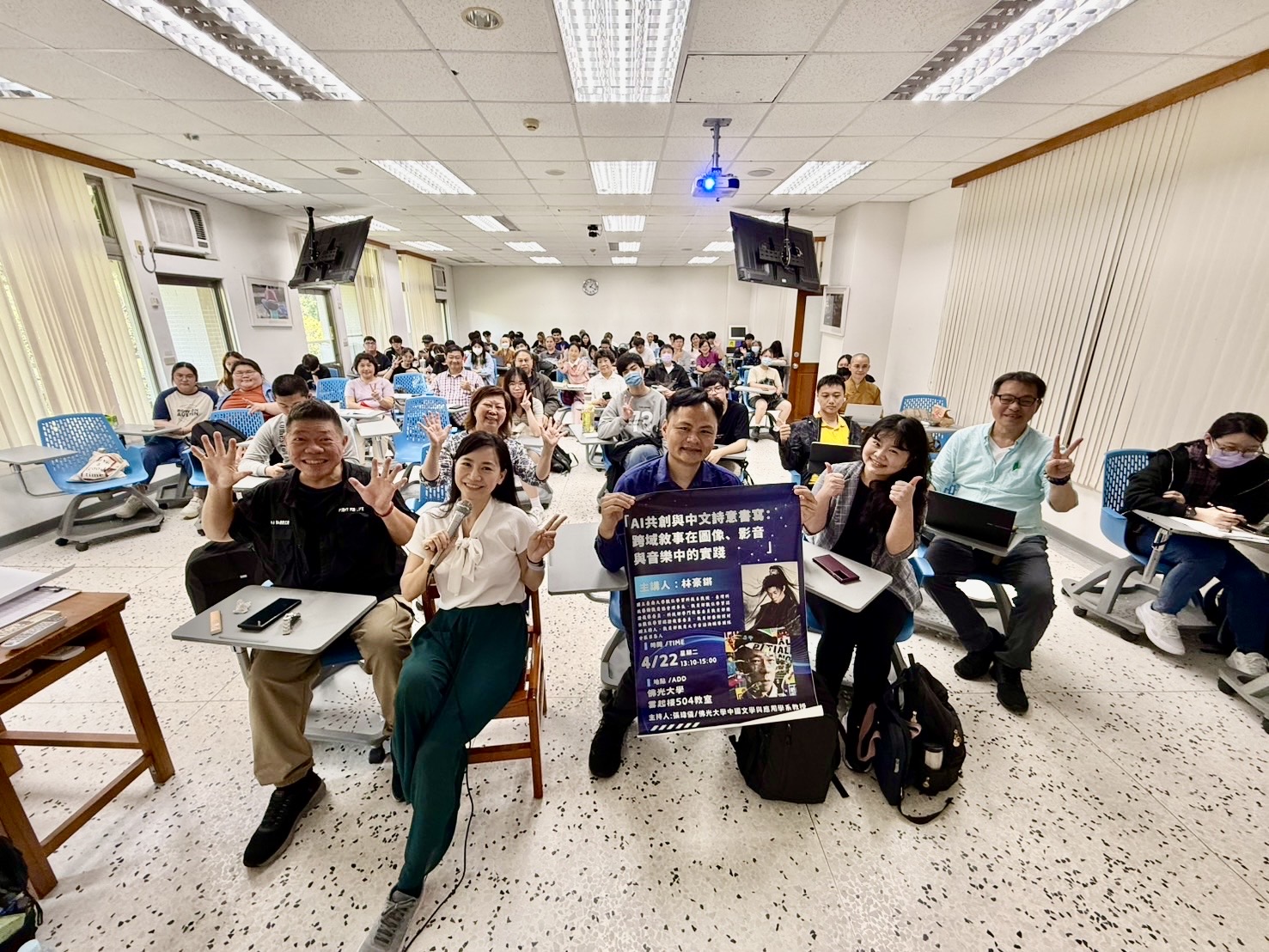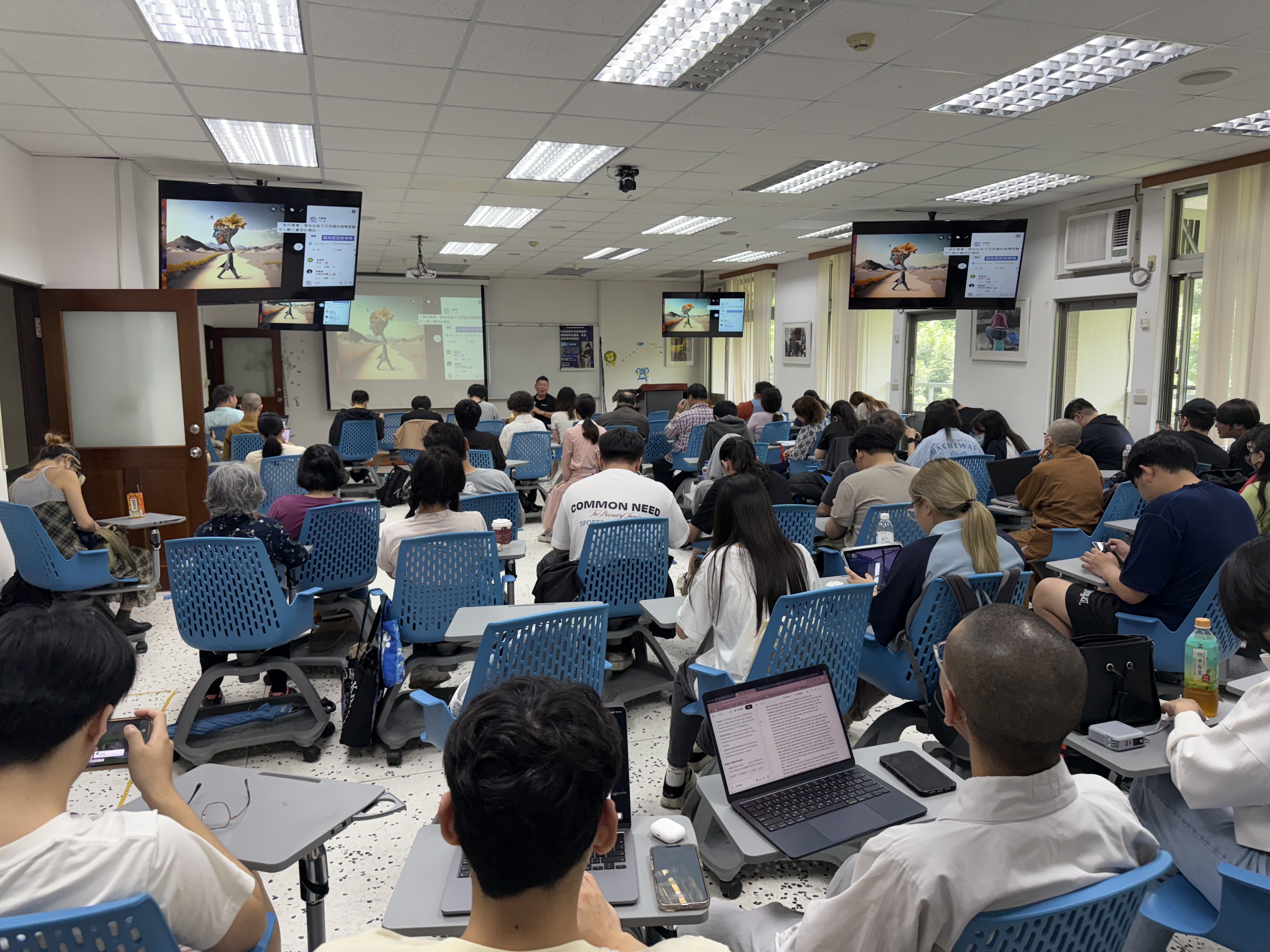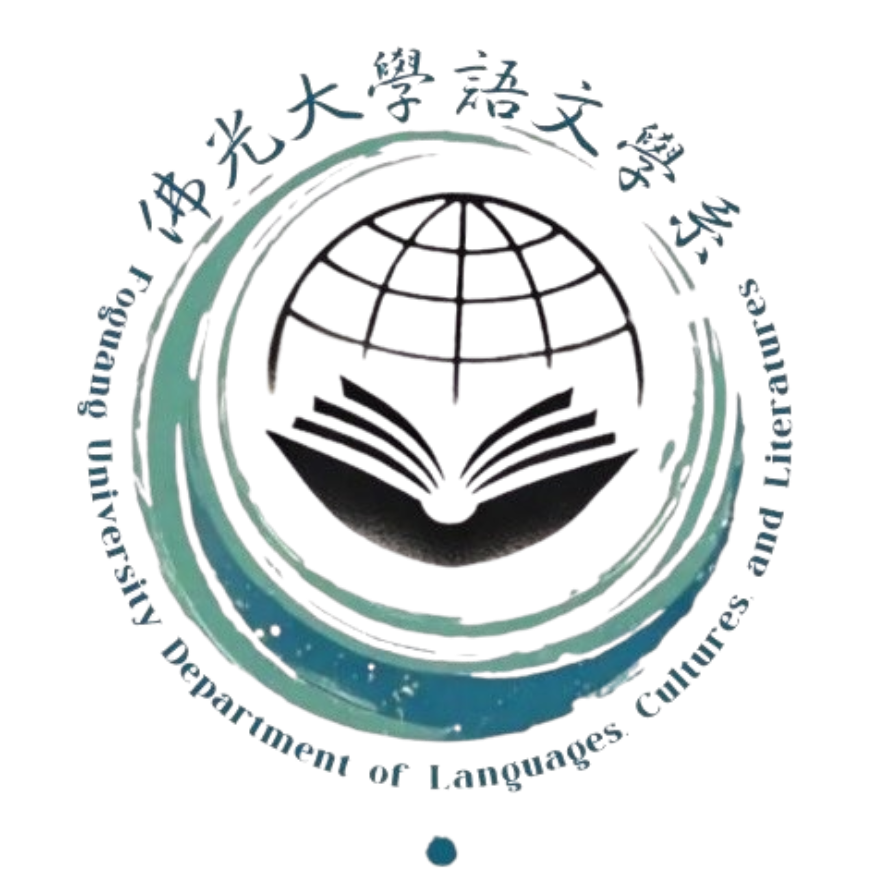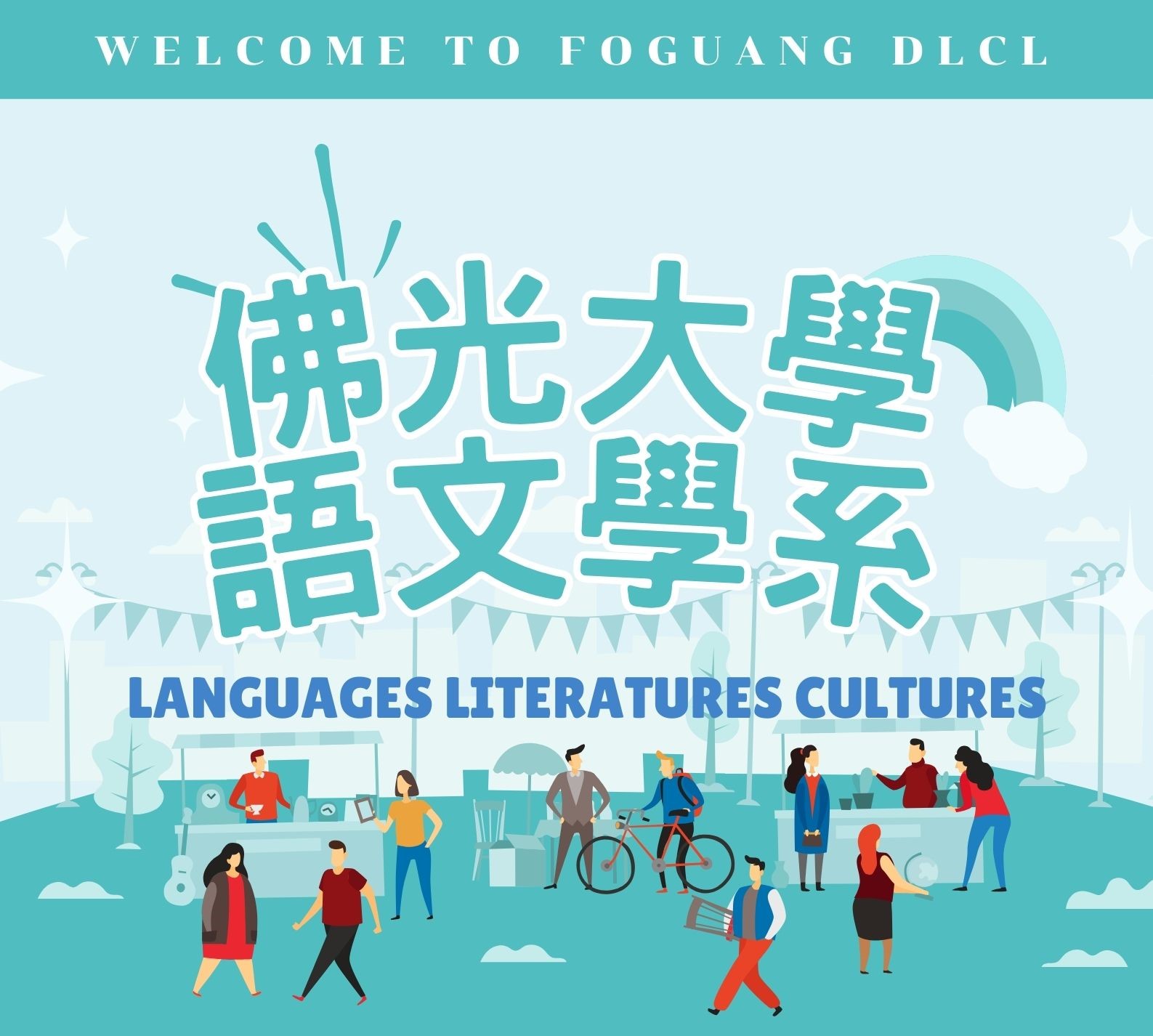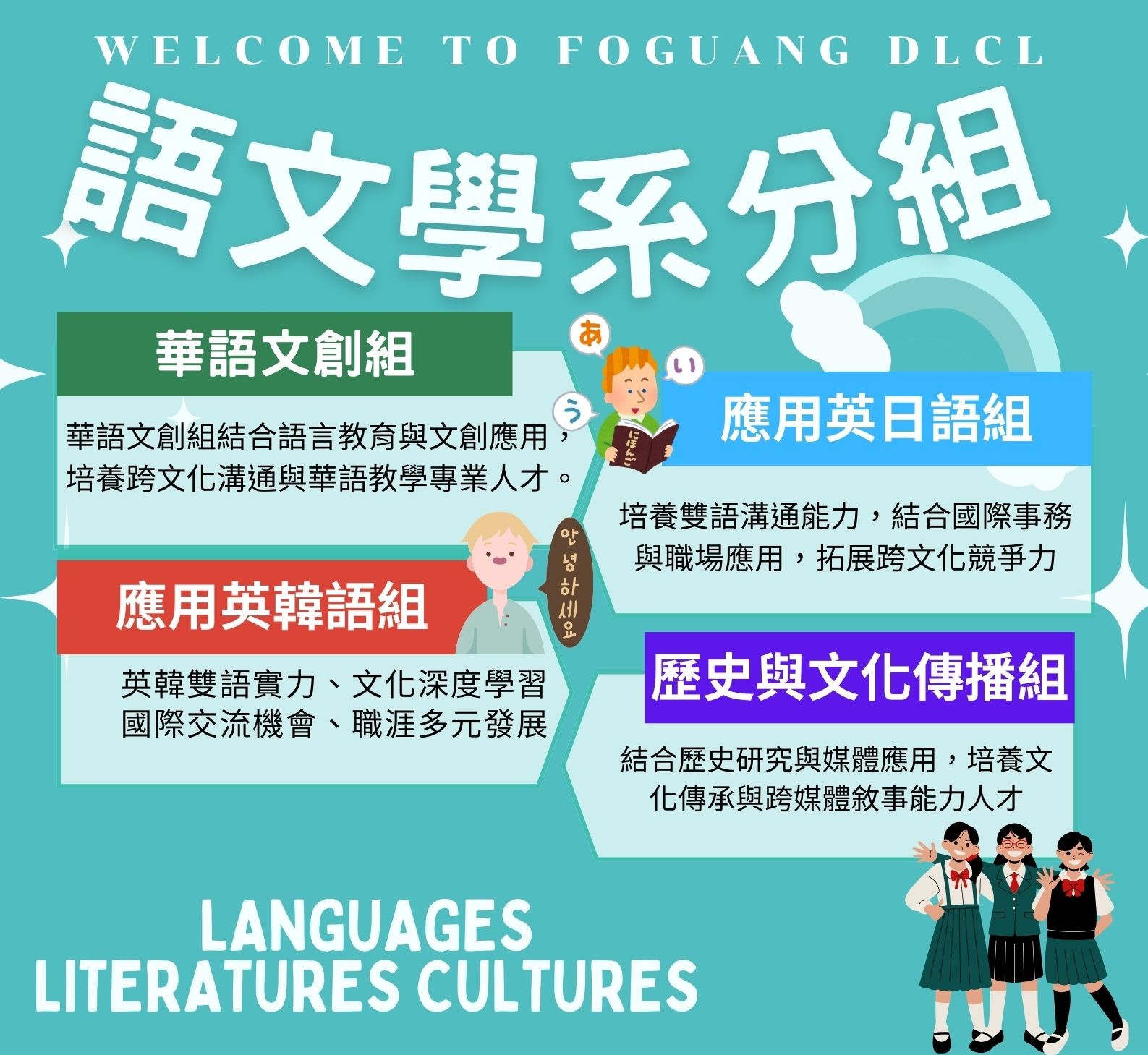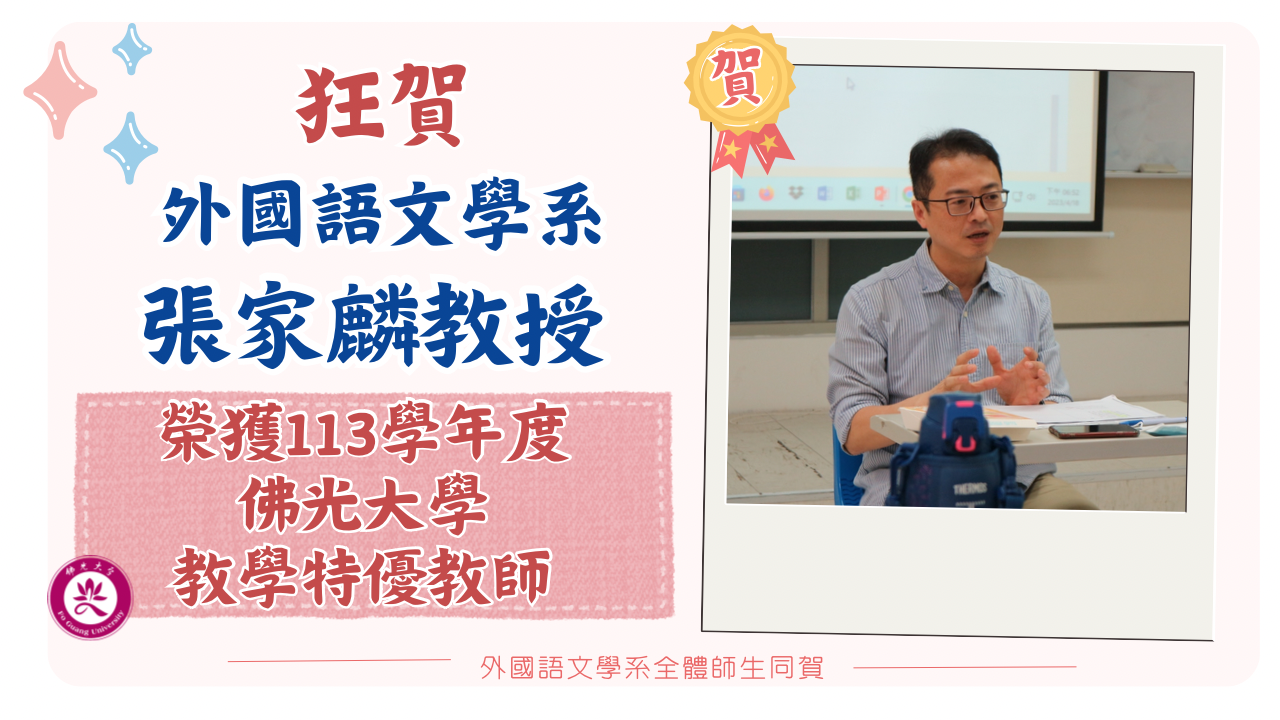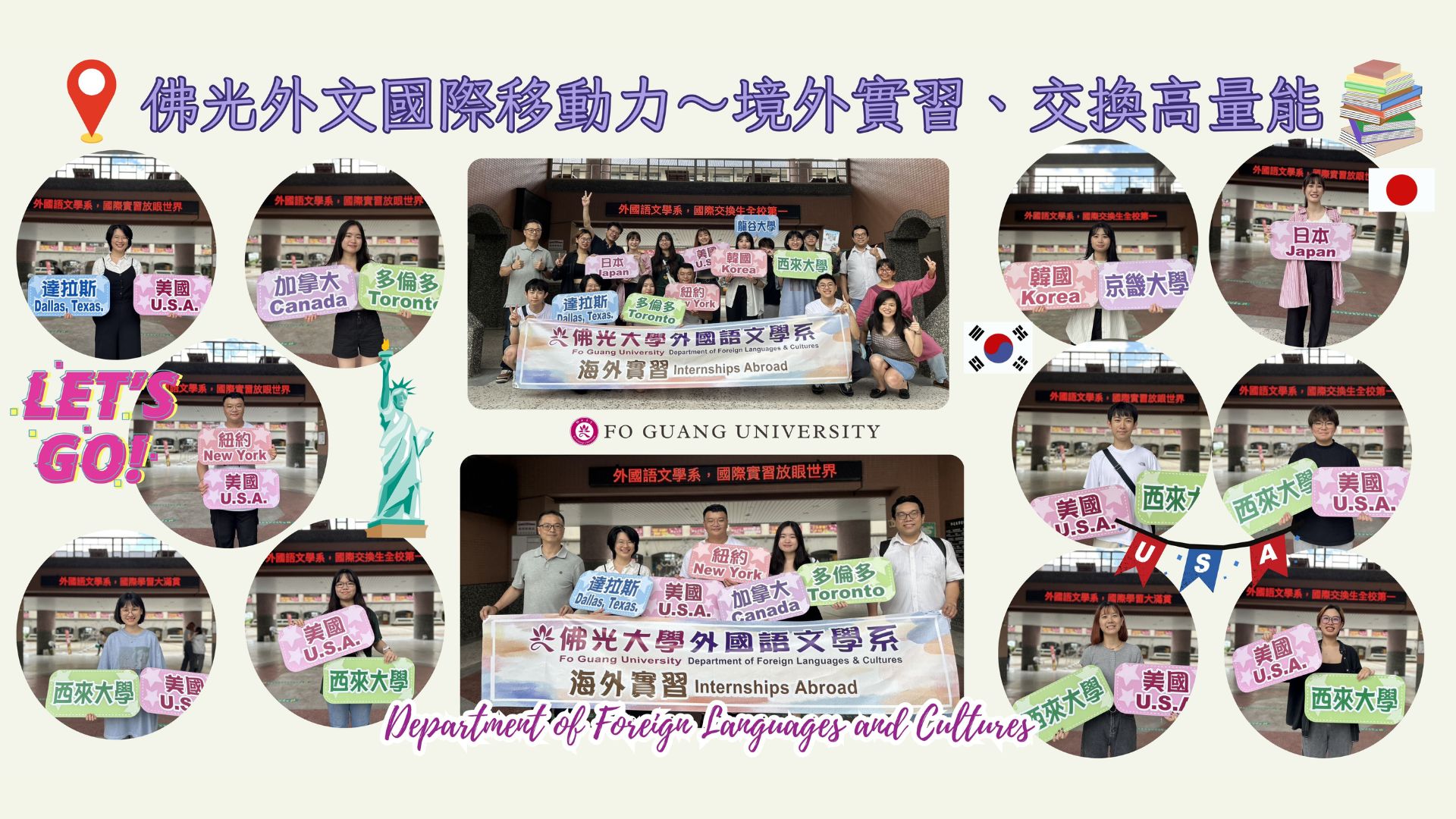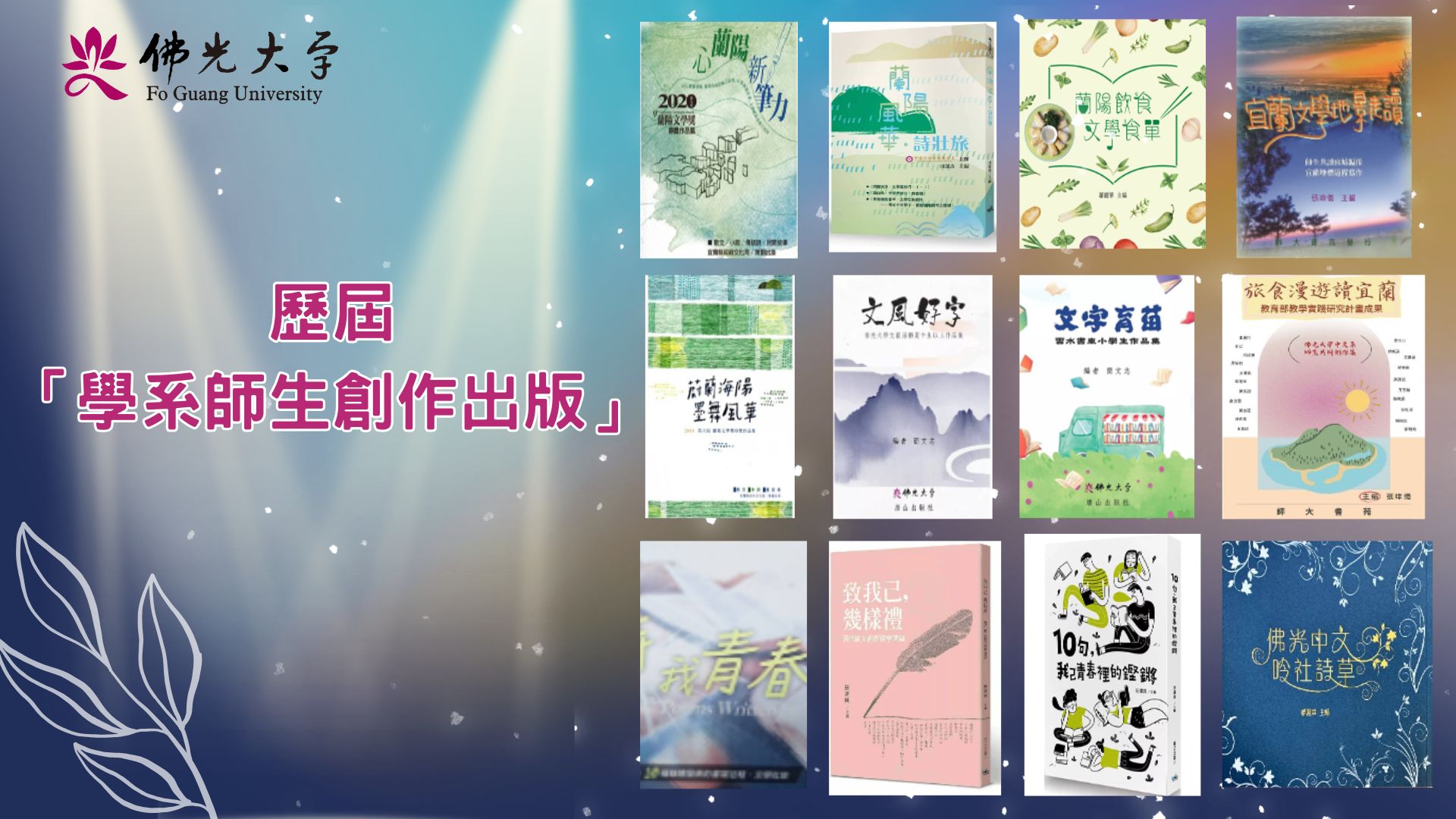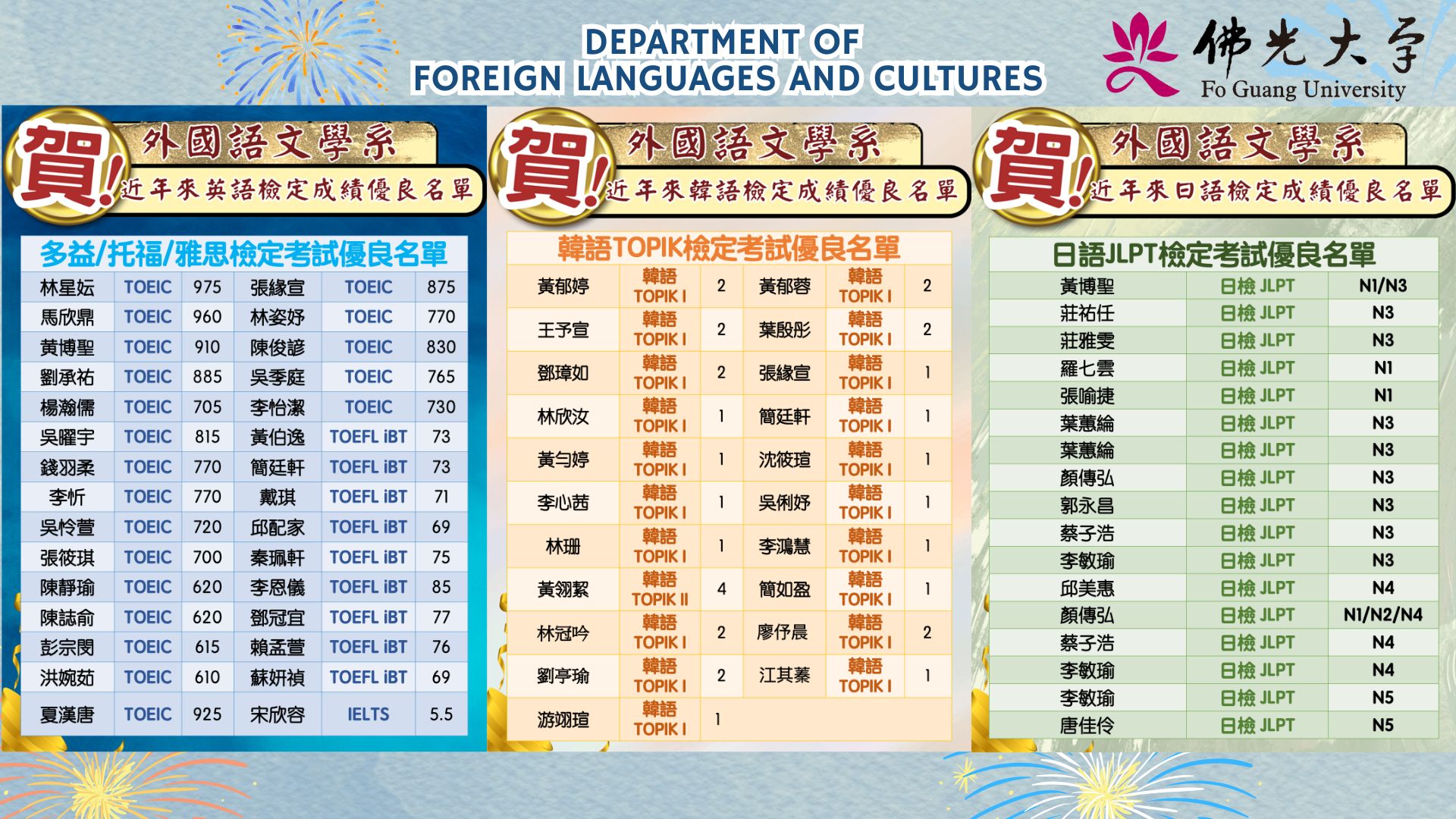[News]
In order to promote the application of generative AI in language learning, implement quality education and narrow the gap in educational resources, our department held the "Digital Narrative Creation Training Workshop" on April 21-22. The "Visual Language Training of Digital Storytellers - Narrative and Communication from Text Generation to Improvisational Expression" of our school's Higher Education Deepening Project was hosted by Pro. Chang Weiyi,Department of Chinese Literature and Application, who invited Pro. Lin Haoqiang, a professor at the Department of Digital Learning Technology of the National University of Tainan and chairman of the Taiwan Science and Art Education Association, to be the keynote speaker, leading teachers and students to carry out learning practices that integrate AI and narrative expression.
Professor Lin Haoqiang is a doctor of information science from National Tsing Hua University. He serves as a review committee member and consultant for the Ministry of Education and the Ministry of Science and Technology, and convener of the Education Metaverse Consulting Team. He has been committed to teaching and research in the fields of artificial intelligence, extended reality, emotional computing, digital art, and interactive multimedia for many years. He presides over the Digital Art and Interactive Design Laboratory. His expertise covers personalized adaptive learning, natural language processing, and cross-domain teaching design. He has won the "Academic Excellence Award of the Engineering Education Society", "Information Society Desire Information Culture Award", "National Science Council Outstanding Research Talent" and other honors, and has been ranked among the top 1.45% of outstanding research scientists in the world by ScholarGPS. He has lectured all over Taiwan and has made great contributions to the integration of technology and humanities.
The workshop introduces AI co-creation software in the humanities field. Teachers and students actually operate AI content generation on site, guiding students from thematic thinking to digital narrative practice, and conducting cross-media story creation and improvisational expression exercises. The content of the activities integrates local culture, social issues and educational equality thinking, so as to strengthen students' digital graphic and text communication capabilities and deepen their understanding and practice of the SDGs sustainable development goals.
Professor Lin Haoqiang is a doctor of information science from National Tsing Hua University. He serves as a review committee member and consultant for the Ministry of Education and the Ministry of Science and Technology, and convener of the Education Metaverse Consulting Team. He has been committed to teaching and research in the fields of artificial intelligence, extended reality, emotional computing, digital art, and interactive multimedia for many years. He presides over the Digital Art and Interactive Design Laboratory. His expertise covers personalized adaptive learning, natural language processing, and cross-domain teaching design. He has won the "Academic Excellence Award of the Engineering Education Society", "Information Society Desire Information Culture Award", "National Science Council Outstanding Research Talent" and other honors, and has been ranked among the top 1.45% of outstanding research scientists in the world by ScholarGPS. He has lectured all over Taiwan and has made great contributions to the integration of technology and humanities.
The workshop introduces AI co-creation software in the humanities field. Teachers and students actually operate AI content generation on site, guiding students from thematic thinking to digital narrative practice, and conducting cross-media story creation and improvisational expression exercises. The content of the activities integrates local culture, social issues and educational equality thinking, so as to strengthen students' digital graphic and text communication capabilities and deepen their understanding and practice of the SDGs sustainable development goals.
